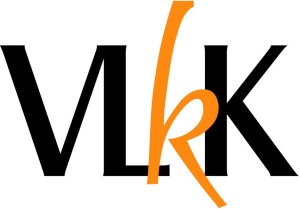 Ever since its establishment back in 2003 the Lithuanian Translation Unit has been actively cooperating with the State Commission of the Lithuanian Language (Valstybinė lietuvių kalbos komisija, VLKK). Quite a powerful state institution, accountable to the national parliament, consists of 17 members (appointed by the parliament) and numerous sub-committees of language experts in different fields, e.g. grammar, syntaxis or terminology.
Ever since its establishment back in 2003 the Lithuanian Translation Unit has been actively cooperating with the State Commission of the Lithuanian Language (Valstybinė lietuvių kalbos komisija, VLKK). Quite a powerful state institution, accountable to the national parliament, consists of 17 members (appointed by the parliament) and numerous sub-committees of language experts in different fields, e.g. grammar, syntaxis or terminology.
As a state-run institution, the Commission was established in 1990. In 1993, the Law on the Status of the State Commission of the Lithuanian Language was adopted, which obligated the State Commission of the Lithuanian Language to address the issues of codification of the Lithuanian language, usage of standards and implementation of the Law on Official Language and rendered the State Commission of the Lithuanian Language decrees on linguistic issues binding to all the companies, agencies, institutions, and the media in Lithuania. For the purposes of enforcement, a language inspectorate was established as a part of the Commission.
The State Commission of the Lithuanian Language is the main point of reference since it decides the issues of standardisation of the language and appraises and approves the most important standardising language works such as dictionaries, reference books, guidebooks and textbooks.
In order to facilitate the communication with EU institutions (mainly translation services), a mechanism of cooperation between the State Commission of the Lithuanian Language and EU institutions was created in 2010 by a governmental decree on the coordination of terms of EU legislative acts when they still are in the phase of a project. The mechanism is based on a one-stop-shop principle: in case of a term that is new, inaccurate, incoherent with the term used in national legislation or there are synonymous terms, EU institutions send a properly filled standardized form of inquiry to Terminology Subcommittee of the State Commission of the Lithuanian Language, which in turn consults relevant experts or relevant institutions, e.g. LT ministries and relevant departments, and takes a decision after having carefully considered all the information received. These decisions as well as all the State Commission of the Lithuanian Language decrees are not binding for EU institutions and are a kind of recommendation. Nevertheless, so far in most cases those decisions were accepted by EU institutions and the terms were entered into IATE. So the mechanism has proven to be very effective as it involves all stakeholders and does not take a very long time (usually not more than 3-4 weeks) to agree on a linguistically problematic term.
Another example of successful cooperation between EP LT Unit terminologists and the State Commission of the Lithuanian Language would be a project of the compilation of a harmonised list of all titles of the national parliaments of all European countries carried out in 2012. This list, comprising 47 titles, has been drawn up by LT Unit terminologists in coordination with the State Commission and the State Chancellery and will be entered into IATE shortly. This list has been established by a separate decree of the State Commission of the Lithuanian Language and now serves as a reference list for all Lithuanian institutions dealing with the issues of the Lithuanian Presidency of the EU Council and international cooperation.
Besides, a series of seminars on the controversial issues of modern Lithuanian linguistics with the contributions of invited speakers from the Language Commission are organized regularly for the staff of EU Institutions.
The cooperation with the State Commission of the Lithuanian Language is of a special value both for the terminologists and for the entire LT Unit when dealing with challenges of new complex terminology and the terminologists of LT Unit hope this cooperation will continue to show an example of the best practice in the field of terminology at the inter-institutional level.
Article written by: Jonas Smilga, translator at the European Parliament, Lithuanian Unit.
